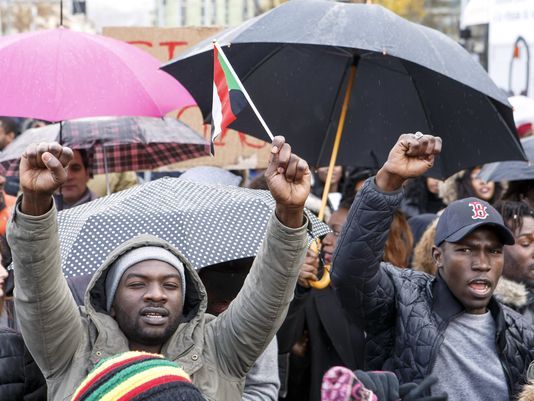
Each day, migrants set out in flimsy wood and rubber boats to cross what has become the sector’s deadliest border — the Mediterranean Sea.
And more and more, the ones rickety vessels are grew to become around and despatched lower back to Libya.
Correspondent Megan Williams spent the closing two weeks on the migrant rescue boat, Aquarius, inside the Mediterranean, collecting material for the CBC application, The Current.
READ MORE UN Investigating Libya Slave Trade
She says comfort people on Aquarius had been readying to rescue a boatload of migrants Friday and produce them to Sicily. Instead, the useful resource vendors received instructions from authorities in Rome to forestall and permit Libyan authorities to board the boat instead and ship the migrants lower back to Libyan detention camps.
“It become heartbreaking,” Williams says. “We hear loads about human beings risking their lives at sea to go to Italy. But sincerely the worst ordeal for these human beings are the detention camps in Libya. I talked to many women and men over the days on the boat who’d been rescued, and all of them talked about being tortured. The girls have been raped … Some ladies failed to need to speak about it, of path, but the violence in Libya is terrible.”
Aquarius became chartered by using the French-German nongovernmental agency, SOS Méditerranée. Williams stood on the vessel’s bridge searching through binoculars, looking because the migrants had been became lower back.
“People ought to get off that rubber boat and get right into a Libyan naval ship and move returned to Libya when they’d paid hundreds of dollars,” she says.
The migrants feared that smugglers would extort extra money from them when they again to Libya or force them to sell themselves into servitude, consistent with Williams.
“There’s in reality auctions going on [in Libya] which the [migrant] men pointed out wherein they’re offered off for $four hundred to paintings for someone for a year or however lengthy,” she adds.
More News Russia vows more support for Libya national dialogue
Williams described one Eritrean woman who had made the voyage from Libya followed best by her three-yr-old son. The lady advised Williams the journey thru Sudan was especially treacherous.
“At each forestall alongside the way, the women are raped by the Sudanese squaddies,” the migrant defined to Williams. “The Eritrean ladies all take the tablet before they leave on their adventure due to the fact they realize they’re going to be raped.”
